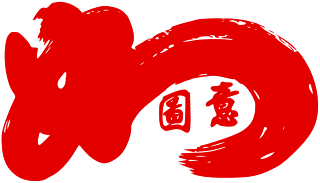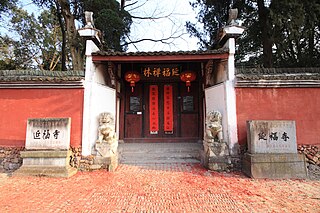One-nation conservatism, also known as one-nationism or Tory democracy, is a paternalistic form of British political conservatism. It advocates the preservation of established institutions and traditional principles within a political democracy, in combination with social and economic programmes designed to benefit the ordinary person. According to this political philosophy, society should be allowed to develop in an organic way, rather than being engineered. It argues that members of society have obligations towards each other and particularly emphasises paternalism, meaning that those who are privileged and wealthy pass on their benefits. It argues that this elite should work to reconcile the interests of all classes, labour as well as management, instead of identifying the good of society solely with the interests of the business class.
Neoconservatism is a political movement born in the United States during the 1960s among liberal hawks who became disenchanted with the increasingly pacifist foreign policy of the Democratic Party, and the growing New Left and counterculture, in particular the Vietnam protests. Some also began to question their liberal beliefs regarding domestic policies such as the Great Society.
Paleoconservatism is a political philosophy and variety of conservatism in the United States stressing Christian ethics, nationalism, paternalism, regionalism and traditionalism. Paleoconservatism's concerns overlap with those of the Old Right that opposed the New Deal in the 1930s and 1940s as well as with paleolibertarianism.

Irving Kristol was an American journalist who was dubbed the "godfather of neoconservatism". As a founder, editor, and contributor to various magazines, he played an influential role in the intellectual and political culture of the last half of the twentieth century. After his death, he was described by The Daily Telegraph as being "perhaps the most consequential public intellectual of the latter half of the [twentieth] century".

Social Democrats, USA (SDUSA) is a small political association of democratic socialists and social democrats founded in 1972. The Socialist Party of America (SPA) had stopped running independent presidential candidates and consequently the term party in the SPA's name had confused the public. Replacing Socialist with Social Democrats, SDUSA clarified its vision to Americans who confused social democracy with the ideology of the Communist Party of the Soviet Union which SDUSA opposes.
Christian democracy is a political ideology that emerged in 19th-century Europe under the influence of Catholic social teaching, as well as Neo-Calvinism. Christian democratic political ideology advocates for a commitment to social market principles and qualified interventionism. It was conceived as a combination of modern democratic ideas and traditional Christian values, incorporating the social teachings espoused by the Catholic, Lutheran, Reformed, and Pentecostal traditions in various parts of the world. After World War II, the Protestant and Catholic movements of the Social Gospel and Neo-Thomism, respectively, played a role in shaping Christian democracy. Christian democracy continues to be influential in Europe and Latin America, although it is also present in other parts of the world.
Liberal conservatism is a political ideology combining conservative policies with liberal stances, especially on economic, social and ethical issues, or a brand of political conservatism strongly influenced by liberalism.
The Public Interest (1965–2005) was a quarterly public policy journal founded by the New York intellectuals Daniel Bell and Irving Kristol in 1965. It was a leading neoconservative journal on political economy and culture, aimed at a readership of journalists, scholars and policy makers.

Shengdao, best known by its corporate name Tongshanshe is a Confucian salvation sect part of the Xiantiandao lineage.
Centre-right politics or center-right politics, also referred to as moderate-right politics, are politics that lean to the right of the left–right political spectrum, but are closer to the centre than other right-wing politics. From the 1780s to the 1880s, there was a shift in the Western world of social class structure and the economy, moving away from the nobility and mercantilism, as well as moving toward the bourgeoisie and capitalism. This general economic shift toward capitalism affected centre-right movements such as the British Conservative Party, that responded by becoming supportive of capitalism.

Chen Xitong was a member of the Politburo of the Communist Party of China and the Mayor of Beijing until he was removed from office on charges of corruption in 1995.
Libertarian conservatism, also known as conservative libertarianism or conservatarianism, is a political philosophy that combines conservatism and libertarianism, representing the libertarian wing of conservatism and vice versa. Libertarian conservatism advocates the greatest possible economic liberty and the least possible government regulation of social life, mirroring laissez-faire classical liberalism, but it harnesses this to a belief in a more social conservative philosophy emphasizing authority and duty.

The Party School of the Central Committee of the Communist Party of China in Beijing, also known as the Central Party School, is the higher education institution which specifically trains officials for the Communist Party of China. As of 2012, it has around 1,600 students. The current president is Chen Xi, a member of the Politburo of the Communist Party of China.

Neoconservatism: Why We Need It is a 2006 book by Douglas Murray, in which the author argues that neoconservatism offers a coherent platform from which to tackle genocide, dictatorships and human rights abuses in the modern world, that the terms 'neoconservativism' and 'neocon' are often both misunderstood and misrepresented, and that neoconservativism can play a progressive role in the context of modern British politics.

Shanrendao is a Confucian-Taoism religious movement in northeast China. Its name as a social body is the Universal Church of the Way and its Virtue or simply the Church of the Way and its Virtue, which is frequently translated as the Morality Church. Shanrendao can be viewed as one of the best examples of the jiàohuà movements.
Neoauthoritarianism (新权威主义) is a political current in China, if not the Chinese Communist Party itself, that advocates a powerful state to facilitate market reform and with it ultimately political reform, considering the former a precondition for the latter. It may be described as classically conservative even if elaborated in Marxist theorization.

Yanfu Temple or Yanfu Chan Temple is a Buddhist temple located in Wuyi County, Zhejiang, China. The Mahavira Hall is the earliest Yuan dynasty (1271–1368) architecture and one of the three Yuan dynasty wooden architecture in Jiangnan.
Jiang Shigong is a Chinese legal and political theorist, currently a professor at Peking University Law School, and a researcher on Hong Kong affairs. He is a "conservative socialist" exponent of Xi Jinping Thought and opposed to liberalism in China. Jiang previously worked at the Hong Kong Liaison Office from 2004 to 2008, and has advised the Chinese government on Hong Kong on subsequent occasions. Among his major ideas are his theory of the "absolute" or unwritten constitution of China embodied in the leadership of the Chinese Communist Party and his argument for the supremacy of the state as an "ethical entity" and the embodiment of the people's drive towards self-transformation. One of the main Chinese translators of Carl Schmitt, Jiang is a notable promoter of Schmitt's political theory in China.

Wang Shaoguang is a Chinese political scientist and prominent theorist of the Chinese New Left. He is currently emeritus professor at the Department of Government and Public Administration of the Chinese University of Hong Kong. A critic of Western representative democracy, his particular research interests include the history of the Cultural Revolution and the comparative politics of East Asia.
Xiao Gongqin is a Chinese historian and leading exponent of neoauthoritarianism. A professor at Shanghai Normal University, Xiao's historical research has focused on the period between the late Qing dynasty and the early Republic of China. From 1989 onwards, Xiao became involved in the debate over China's reform process, arguing for incremental reform based on China's particular national character and the replacement of Marxism by Chinese nationalism.










